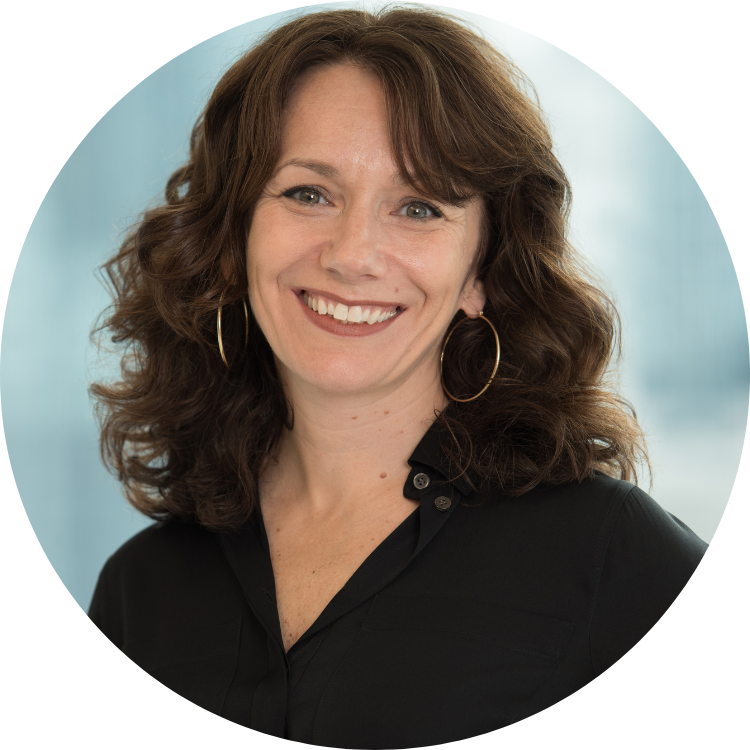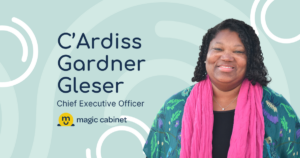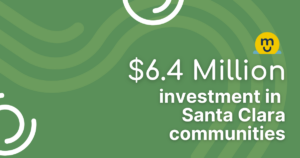What happens when you become a leader in community-driven participatory grantmaking? You bring other funders along.
Partnership Outcomes
Two-year, $700K grantmaking initiative, including compensation for applicants and community advisors.
Magic Cabinet’s first philanthropic partnership resulting in adoption of aspects of MC’s engagement model.
STRONG’s first multi-year grantmaking initiative and single largest grant award since the collaborative's inception.
Funders are increasingly experimenting with participatory approaches to center communities in grantmaking decisions. Although experimentation is underway, the tools and resources that emerge remain siloed rather than being shared, making it challenging to achieve a broader shift toward more community-informed practices.
At Magic Cabinet, we’ve spent 17 years developing an approach to help funders bridge the gap between aspiration and action. This approach unfolded in our recent collaboration with the East Contra Costa STRONG Collaborative Fund (STRONG), of which Magic Cabinet is a member. On the heels of this work, we’re excited to share how this partnership came together and what we learned along the way.
Partnership Overview
There’s no secret formula…
…and participatory grantmaking isn’t a new concept. Organizations worldwide have adopted this approach to shift decision-making power to communities and, more importantly, realize heightened impact. Models and methods may vary, but the formula is still the same—experiment boldly and scale what works.
Take the STRONG Collaborative, a group of Bay Area funders working at the intersection of racial and economic justice in East Contra Costa County, California. After a decade of regional investments, STRONG decided to shake things up, launching its first-ever community-advised grantmaking pilot. Over six months, Magic Cabinet’s team partnered with STRONG to develop a participatory process that accelerated $600,000 in capacity-building funding to grassroots and nonprofit organizations, laying the groundwork for the broader adoption of community-driven practices within STRONG’s grantmaking.
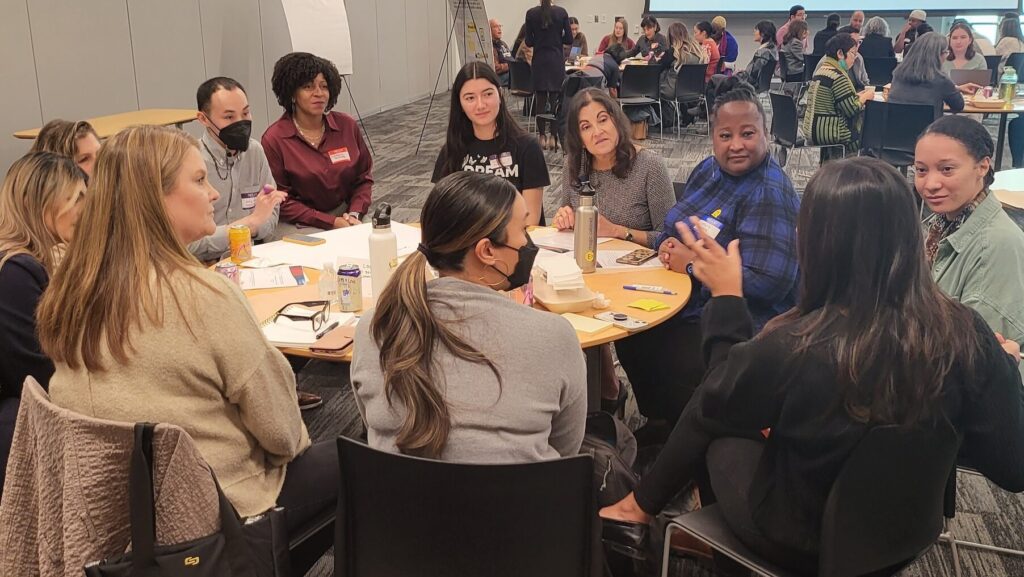
…It Just Makes Sense
Magic Cabinet’s Chief Strategy Officer, Tiffany Johnson, initially connected with STRONG in 2023, following a community-informed learning process to identify opportunities to increase racial and economic justice in East Contra Costa.
At the time, STRONG was already eight years into its grantmaking journey, focused on building the capacity of executive directors and emerging leaders of color in the region, and had recently partnered with the San Francisco Foundation’s Koshland Program to support a cohort of Black leaders in East Contra Costa.
We were thrilled to be invited to join an action-oriented collaborative committed to accelerating philanthropic investments in East Contra Costa County. Shortly after joining the STRONG Collaborative, we were invited to a Community Gathering, where we heard directly from community leaders about the support needed to build and sustain a thriving ECCC community.
Summary of Challenges
Access to Funding
95% of nonprofits noted a lack of access to general and unrestricted funding opportunities.
Infrastructure Support
Half of nonprofits surveyed in STRONG’s Learning Brief reported needed infrastructure support.
Capacity-Building Support
The most common need expressed was an interest in receiving capacity-building and leadership support.
Coalition-Building Opportunities
25% of nonprofits noted a lack of coalition and network-building opportunities in East Contra Costa County.
Challenges in East Contra Costa County
In recent decades, East Contra Costa has experienced increased racial and economic inequities due to disparities in access to local resources, job opportunities, public services, and philanthropic funding. To date, Contra Costa County remains an underinvested region, with the county as a whole receiving just 3% of philanthropic funding despite comprising 15% of the Bay Area population.
The impacts on grassroots organizations and nonprofits have been significant, with many expressing a need for increased access to funding, enhanced infrastructure, support for capacity building and leadership development, as well as coalition-building opportunities. The challenges identified in STRONG’s community-informed Learning Brief included:
- Access to Funding. Nearly 95% of STRONG’s nonprofit partners mentioned a lack of access to general and unrestricted funding. Funding to secure livable wages for nonprofit staff was cited as a top concern, alongside support for expanding or maintaining existing programs.
- Infrastructure Support. At least half of the nonprofits surveyed in STRONG’s Learning Brief reported needing infrastructure support. For grassroots organizations, this included accessing organizational facilities, setting up their boards, providing technical and accounting assistance, offering staffing support, and updating their IT infrastructure.
- Capacity-Building and Leadership Support. The most common need expressed amongst STRONG’s partners was an interest in receiving capacity-building and leadership support. This included coaching, mentoring, staff development, and training on emotional intelligence, specifically for staff in managerial and supervisory positions, as well as emerging leaders of color.
- Coalition-Building Opportunities. Several nonprofits (25%) noted the lack of coalitions and networks in East Contra Costa and shared a desire for more collaboration and inter-organizational partnerships. There was a call for funders to resource coalition building and fund opportunities for nonprofit staff to participate in meaningful networking.
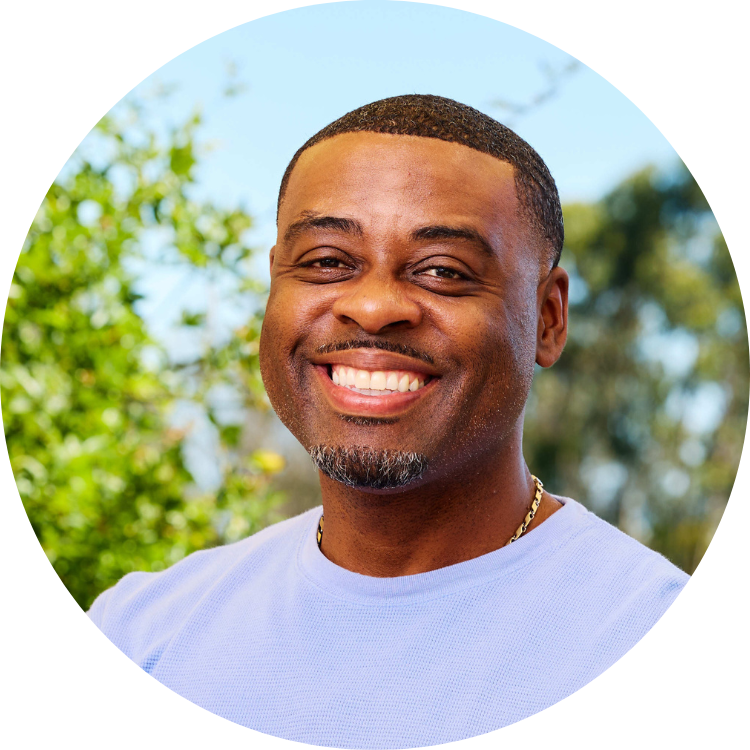
Malcolm Penton
Bay Area Program Officer, Magic Cabinet
Summary of Opportunities
General Operating Support
Smaller nonprofits emphasized the need for general unrestricted funding to be more responsive to community needs.
Connecting with Funders
Nonprofits shared a desire for more networking events with funders to increase connections and exposure to their work.
Networking Opportunities
Community leaders called out the need for increased cross-sector networking opportunities among nonprofits.
Resourcing Powerbuilding
A call for funders to resource powerbuilding and organizing among East Contra Costa County organizations.
Opportunities in East Contra Costa County
STRONG mapped its grantmaking to these priorities, investing in BIPOC leadership cohorts, programs to build community voice and power, and spaces for cross-sector collaboration and coalition building. Additional investment opportunities included:
- Multi-Year General Operating Support. Smaller nonprofit organizations emphasized the need for general, unrestricted funding to be more responsive to immediate needs, including staffing, coaching, and mentorship opportunities.
- Relationship-Building with Funders. Nonprofits shared a desire for more networking events with funders to increase exposure to their work and deepen community engagement.
- Strengthening Connections Among Nonprofits. Community leaders noted the need for increased networking opportunities among nonprofits, specifically across sectors, to foster shared goals and outcomes.
- Resourcing Powerbuilding and Organizing. There was a call for funders to resource power building and organizing among ECCC organizations, enabling them to streamline coalitions to address overlapping issue areas more effectively.
The more we connected with fellow STRONG funders and local community leaders, the more we realized our values were deeply aligned. A long-term, place-based strategy to fund capacity-building was just the spark we needed to pursue partnership. Over the next two years, Magic Cabinet would lean in to support STRONG’s grantmaking—as both a funding partner and collaborator—fostering an honest dialogue about how to catalyze deeper impact in the ECCC community.
Piloting a Community-Advised Grantmaking Process
Plant the seed, water it, and see what you can grow…
In 2023, STRONG funders identified $300K in capacity-building funding for grassroots organizations and nonprofits in East Contra Costa. The collaborative wanted to explore incorporating a community-centered, participatory approach within their grantmaking using the earmarked funds as a starting point.
Our team collaborated with STRONG to set the priorities and operating guidelines for what would become a community-advised grantmaking pilot. Drawing on STRONG’s feedback, we assembled a set of recommendations to move funding within six months through a community-advised process. These recommendations included:
- Establishing a community advisory committee
- Compensation for committee members and applicants
- Streamlining the application process
- Providing bias resources and guidance for committee members
Together, we assembled a community-advised grantmaking (CAG) committee comprised of several local community leaders and two regional funders, including Magic Cabinet. Over six months, the CAG committee built and stewarded the pilot, streamlining the application process, selecting organizations to apply, and determining which projects to fund. The process would illuminate the broader nonprofit ecosystem in ECCC, enabling the CAG committee to identify critical areas of support and disperse grant funding in a more meaningful and impactful way.
Elevating Community Expertise
Safi Jiroh is no stranger to STRONG’s grantmaking in East Contra Costa; she’s the Executive Director of LeaderSpring Center, a Bay Area organization focused on leadership learning for nonprofit professionals, with a focus on women of color.
In 2016, LeaderSpring piloted and convened the Contra Costa Leadership Institute, a cohort of 30 nonprofit professionals from 10 organizations that convened over two years to strengthen their leadership and management competencies. Safi then partnered with STRONG to implement two Emerging Leaders of Color (ELOC) Cohorts in East Contra Costa, focused on building the capacity of emerging leaders of color on a path toward executive leadership.
Safi saw firsthand the power of community building as the ELOC cohorts formed into a space where leaders could build trust, share advice and ideas, learn from each other, and strengthen their collective impact. As a CAG committee member, she was able to bring this systems-level perspective to the pilot process.
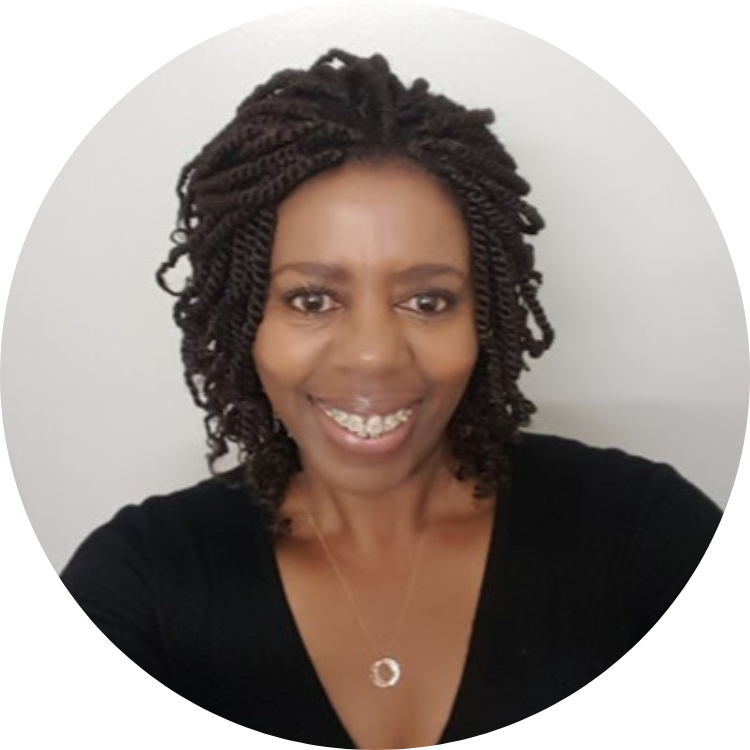
Safi Jiroh
Executive Director, LeaderSpring Center
For Brianna Robinson, coalition building was an unexpected opportunity that emerged from the pilot process. As President and CEO of Opportunity Junction, a workforce development nonprofit, and a longtime ECCC resident, Brianna has seen the county’s transformation from a rural community to a densely populated suburban area with limited professional jobs and training opportunities.
As the population shifted, the community’s needs evolved, leading to many local organizations that weren’t on her radar. For Brianna, it underscored the broad base of coalition opportunities within her community.
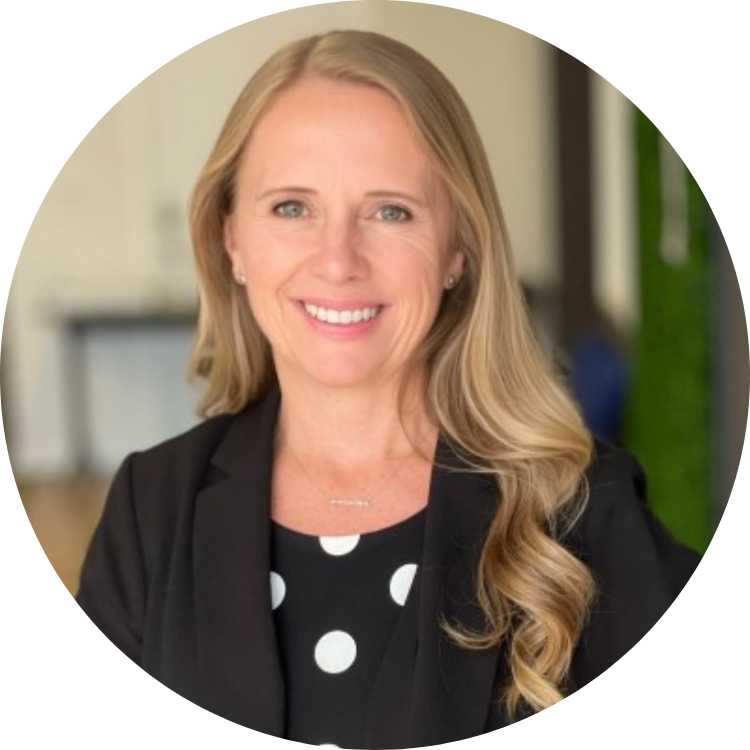
Brianna Robinson
President & CEO, Opportunity Junction
Building Community Power
During the pilot process, the CAG committee was tasked with identifying and recommending nonprofits to apply for grant funding. Through a simple application form, organizations submitted proposals for capacity-building projects that would help advance racial equity and economic justice in ECCC.
On paper, it was a one-year pilot. Questions surfaced in early conversations with STRONG about shifting the pilot to a multi-year grantmaking initiative. This shift would enable STRONG to maximize the participatory grantmaking approach and acknowledge the time, effort, and resources involved in developing the CAG process.
After several discussions, STRONG made the decision to support a multi-year grantmaking initiative. This doubled STRONG’s commitment to $600,000 over two years, marking the fund’s first multi-year initiative and the single largest grant award in its 10 years of grantmaking.
In January 2025, STRONG voted to approve the CAG group’s grantee recommendations, awarding 13 grassroots and nonprofit organizations with capacity-building funding, nine of which were new STRONG grantees.
STRONG will soon launch a learning and evaluation process to solicit feedback from grantees and CAG committee members, informing future community-advised grantmaking initiatives.
Shifting Philanthropy to Center Community
By building genuine relationships and working directly with community leaders, Magic Cabinet helped STRONG build on its community-centered values and principles to support East Contra Costa organizations. Our collaboration with STRONG also helped us gain clarity on our work as we continue to organize philanthropy. We learned:
To build trust, move with intention. Even if something won’t work now, it doesn’t mean it’s a ‘no’ forever. We build trust by being honest about what’s working and what isn’t—that’s how we grow and learn alongside our partners.
Openness leads to better decision-making and impact. Rather than adopting every aspect of our standard model, we listened and framed our recommendations to support STRONG’s priorities for this pilot. STRONG trusted the process, allowing for a smooth collaboration that accelerated capacity-building funding to ECCC organizations within six months.
We know our model and can adapt it to various situations. The magic of our model lies in its flexibility. It’s not only a vetted tool for funders to enhance their grantmaking, but it’s also accessible, replicable, and adaptable to the evolving needs of nonprofits, communities, and funders.
At Magic Cabinet, we believe that nonprofits have the vision and expertise to drive success on their terms. We have tested and honed innovative yet simple practices that any funder can use to ensure their investments are community-driven and effective. Visit our website to learn more about our tools and service, or schedule a chat with our Director of Philanthropic Solutions, Molly Judge to explore how we can partner to accelerate your impact.
Citations:
1. East Contra Costa STRONG Collaborative Fund Learnings From the Field 2022-2023

